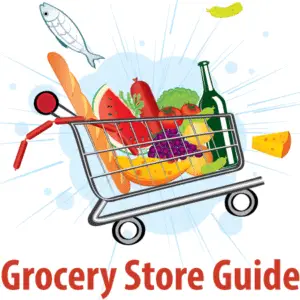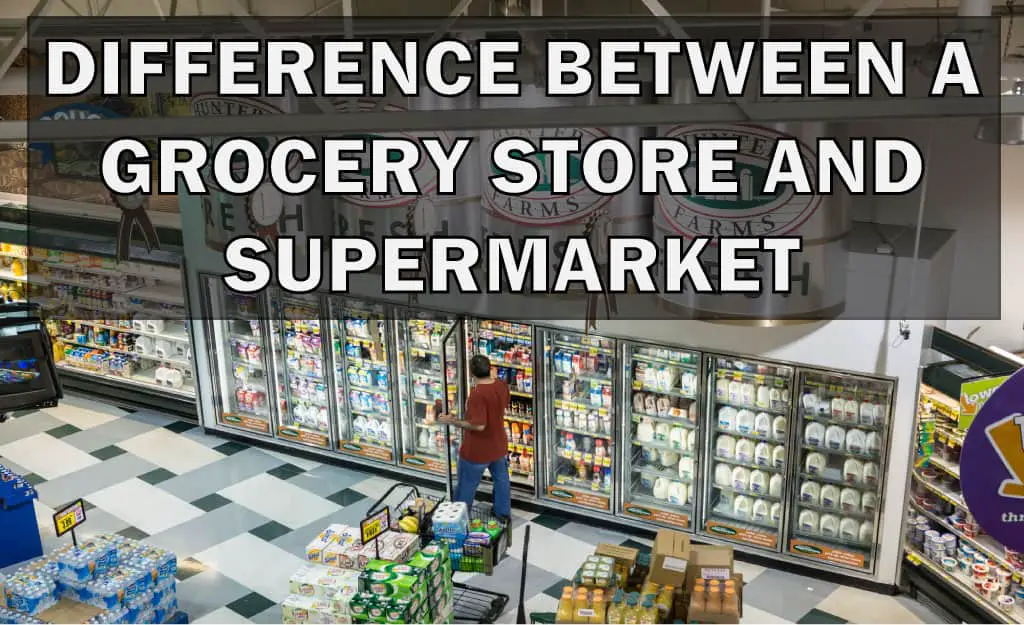The terms grocery store and supermarket are used interchangeably throughout the United States but the words are not actually interchangeable. Many people are surprised to learn that a grocery store and a supermarket are not the same things at all.
Supermarkets sell a large variety of products and foodstuffs. Grocery stores are smaller and deal with a smaller inventory of more specialized grocery items. While these stores both focus on the sale of food, they are slightly different in the inventories they feature, and demographics they target.
This blows folks’ minds to hear, but a grocery store and a supermarket are not the same things. Some of the places that people call “grocery stores” are really more like supermarkets. Read on to find out what makes these two kinds of stores so different.
Grocery Stores
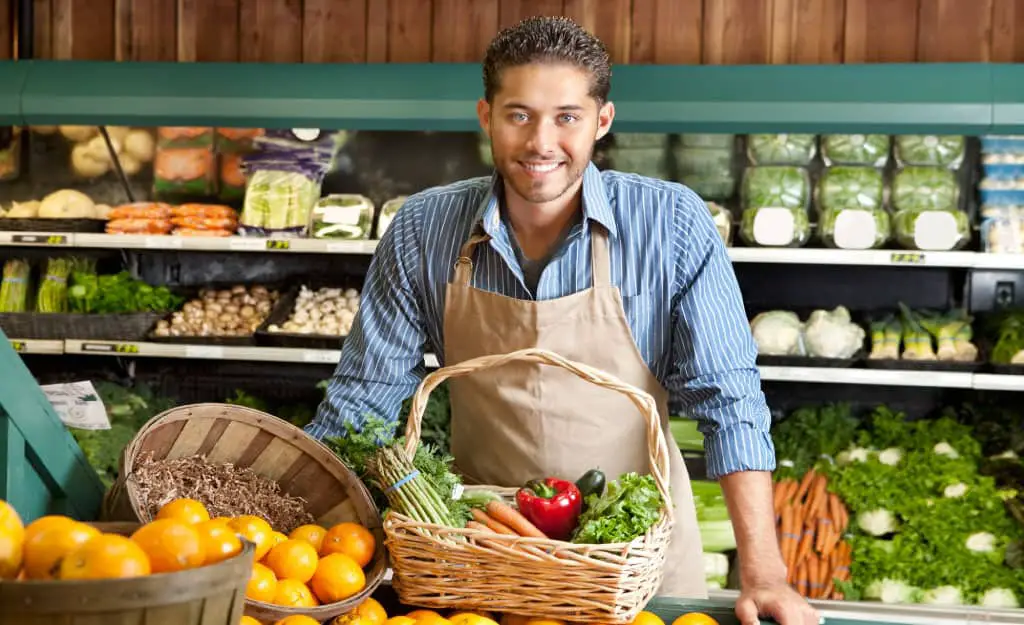
This term is generically used to describe any place that sells food that is intended to be prepared at a person’s home. There are a few more caveats to it, though. Grocery stores do not sell items that are not groceries. It is a common mistake to assume they do, and one that is easy to make.
Key characteristics typical of an average grocery store:
- Smaller in scale
- Privately owned (think mom-and-pop shop)
- Specialized food and spices
- Less variety than larger chains
- Limited hours, might close early on the weekends
Typically, the most common grocery store that a person is likely to run into would be one that caters to an ethnic community. Mexican, Chinese, German, and Philippine grocery stores are becoming more and more popular for families wanting to prepare authentic dishes from their home countries and cultures. Incredible food can be found there.
Specialized grocery stores cater to more specific needs. Fish markets, smokehouses, and bakery outlets sell specific food items that may not be carried in larger chain stores. A customer would shop at a specialized grocery store if they wanted to ensure that they received local, high-quality food products. This is a great way to buy quality ingredients!
Grocery stores will provide specialty ingredients to those with specific tastes. There will definitely be fewer brands to choose from, but a shopper is likely to find the best when they shop at their local grocery store. Many people are choosing to purchase food from businesses that are locally owned. This is great news for those who own grocery stores.
Supermarkets
A supermarket is like a grocery store but with more stock. They usually offer special services in addition to groceries, like delis or even pharmacies. The central focus of a supermarket is still food, but they cover many more needs than smaller stores. More options, better deals, and a broader range of products make up a supermarket.
Key features of a typical supermarket:
- Several different brands to choose from
- Departments for special items
- Larger than a grocery store
- Longer hours/open more often
- Most likely a branch of a larger chain
Most supermarkets offer specialized services. These services typically center around food like an in-house meat butcher, deli counter, or bakery. These services allow the supermarket to offer its customers a wide variety of the freshest products available. These services set a supermarket apart from simple, and smaller grocery stores.
Some supermarkets offer services that are not focused or aimed at the sale of food. These services can include pharmacy sales, pet care, and floral gifts. Despite the fact that these services are not under the scope of food sales, a supermarket is happy to provide them to patrons. These are bonus departments, though. Food is the main focus.
Supermarkets have many more resources at their disposal than standard grocery stores. Most people in the United States do their shopping at supermarkets even though they mistakenly call them grocery stores. People are far more likely to shop at their local supermarket due to the store’s broader selection of products and services.
Grocery Store vs. Supermarket: Which One is Cheaper?
The best place for a bargain is typically a larger supermarket. The amount of inventory and sales offered will ensure that a shopper has access to different brands at very cheap prices. Many supermarkets offer free samples to customers along with other promotions that smaller grocery stores simply cannot. Supermarkets have great deals.
Some factors that will surely affect the prices at a store:
- Products bought in bulk are usually cheaper when sold
- Larger stores have the infrastructure to purchase greater amounts of products
- The quality of the items offered to the customers
- The rarity of the items and their demand
- If a store has a smaller target demographic their prices might be higher
Supermarkets are able to purchase their products wholesale which means they can pass the savings on to their customers. The increased access to products at a lower price coupled with the more sophisticated logistical systems in use allow supermarkets to stay freshly stocked with high-quality products at lower prices.
Grocery stores are much more niche and specialized than their big chain counterparts. They offer groceries, plain and simple. The grocery store owner will purchase the products at a much lower volume than a supermarket, which will result in higher prices and a lack of variety for patrons to compare and choose from. These stores are pricier.
Grocery stores can offer more specialized products but their prices are usually higher. The store needs to make a profit, and this results in higher costs because the store does not have the logistical infrastructure of the competing larger supermarket chains. The inability to purchase products at wholesale rates hinders grocery stores.
Grocery Store vs. Supermarket: Which One is Better?
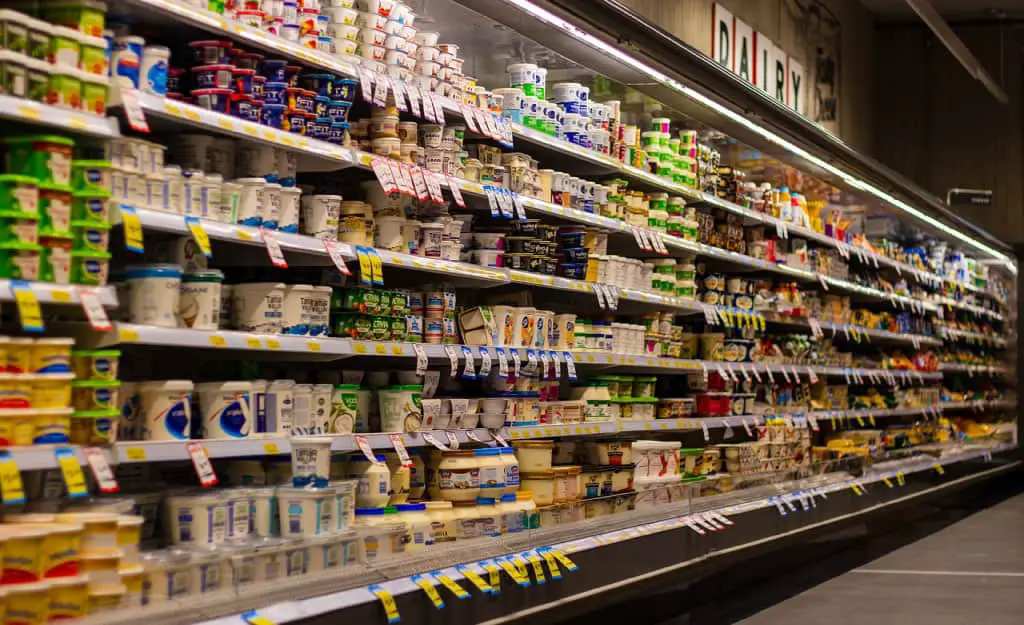
The answer to this question is completely dependent on the habits and purchasing needs of the individual consumer. Some customers are going to be concerned with the best deal while others will be far more interested in the quality of the products offered. These are just a few of the factors that customers will need to consider when they shop.
Things that will influence a customer’s preferences when choosing between grocery stores and supermarkets:
- Availability of deals and discounts
- Access to quality foods that are ethically produced
- Ability to choose from a larger selection of top brand names
- Access to special services in connection to grocery sales
- Availability of niche items for special meals or diets
Supermarkets are the typical choice for most bargain-minded customers. Their ability to offer special discounts and all-around lower prices make them a very popular choice among modern consumers. Customers shop at supermarkets for more consistent access to a large variety of products and foodstuffs they could not find elsewhere.
Many people that chose to shop at local grocery stores do so out of a need for specialty products. Many people choose to shop at grocery stores that provide products from a foreign country or specific ethnic culture because larger supermarkets do not provide those more specialty items. Grocery stores can offer small quantities of niche items.
A customer has to assess their needs when deciding if they should do the bulk of their shopping at a large chain supermarket or a smaller grocery store. These pros and cons definitely need to be weighed. Customers might even decide that their needs require separate shopping trips to both stores. Get the deals and the niche products too!
Benefits of Grocery Stores
Typically, grocery stores will have a smaller selection for their shoppers and customers to choose from when browsing. This does not have to be a bad thing, though, as many grocery stores can offer seasonal, niche, and locally produced items of high quality. Customers that want to find unique items while supporting local shops should look here.
Key benefits unique to a grocery store:
- They are typically locally owned and operated
- They tend to offer higher quality products to customers
- They usually have specialized products not commonly found in the supermarket
- They are much easier to navigate than larger supermarkets
- The inventory shifts typically, which is good for those who like change
Grocery stores can only offer a few selections to their customers. As a result, the best grocery stores will offer the highest quality of products available to set themselves apart from the competition. The goal for a thriving grocery store should be to prioritize quality over quantity. This will keep patrons coming back in lieu of heading to the supermarket.
Niche items can be offered at grocery stores that larger supermarkets could not justify carrying. These smaller grocery stores cater to a specific demographic whose needs are not adequately satisfied by common products available at larger chain stores. This customer base will be loyal to the store that can get what they want regularly.
Some niche items that larger chain supermarkets are less likely to carry:
- Authentic spices for ethnic cuisine
- Special cuts or types of meat like rabbit, alligator, or soft shell crab
- Foreign brands
Some grocery stores will only sell food that has been produced locally or that comes from a supplying farm. Many people would rather see their money invested into local businesses as opposed to larger chains. They might also be more interested in food that has been through less processing and handling for the health of their families.
Benefits of Supermarkets
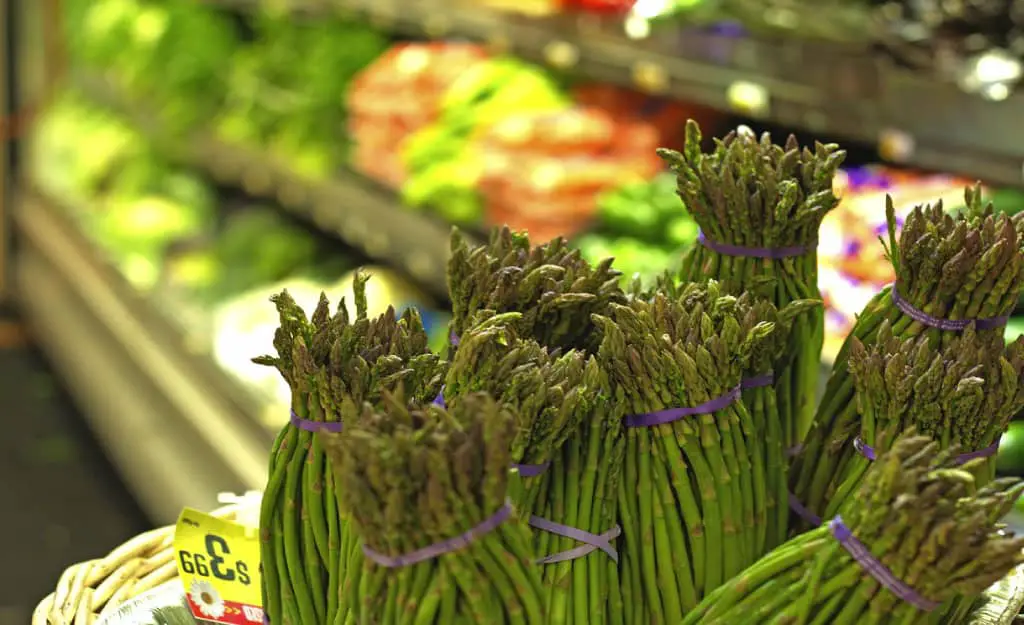
Supermarkets are incredibly convenient for the modern consumer. Many people are looking to make their grocery run in less than two hours. A supermarket will allow a customer to have access to all of the food they will need until it is time to stock up again. The wide selections of products and the lower prices offered are attractive to customers.
Key benefits to a supermarket
- They have cleanliness standards that are enforced by a corporate entity
- They can offer great discounts and promotions
- They can store and display a large volume of inventory
- They tend to be more convenient than smaller grocery stores
- A customer can get all of their groceries at one location
Some grocery stores can let their standards slip depending on the owner. This can make these smaller stores much less enjoyable to shop in. Large chain supermarkets will be held to a standard that is enforced by the corporate office. This will ensure that each customer’s shopping experience is pleasant and uncomplicated.
Supermarkets buy their products in bulk and this allows them to save money. When supermarkets can find the room to pass the savings along to their customers they will take advantage. Customers will be so excited about the good deal they just received that they will happily return time and time again to stock up on their cheap products.
Many customers prefer to have plenty of options when they are making their grocery runs. They will want to compare brands and find the best deals available. Unlike small grocery stores that have less room, large chain supermarkets can afford to stay stocked with more than enough options to suit the needs of their picky shoppers.
What Makes a Supermarket So Super?

The key difference between a grocery store and a supermarket is that a supermarket has multiple types of departments. Grocery stores do not offer any services other than the sale of grocery items. Supermarkets primarily sell food, but will often carry some non-food items as well like floral arrangements, pet needs, and toiletries.
Some of the departments that a shopper might see in a supermarket are:
- Pharmacy and/or vision center
- Pet care and/or in-store aquarium stocking
- Deli counter and/or bakery
- Meat butcher and/or seafood counter
- Wine and beer section
Many supermarkets will either partner with a drug store or rent space in their building to a pharmacy. This can be a serious benefit for both businesses as shoppers can fill their prescriptions and shopping carts at the same time. Convenience is king to the modern consumer. Supermarkets make the shopping experience as convenient as possible.
Supermarkets usually offer a lot of specialty food services like deli counters and meat butchers. This can be a big interest to customers who are shopping for something that is not wrapped up in a package from a factory. Some supermarkets also offer sushi and seafood services as well to supply their customers with the freshest fish that they can.
Despite the fact that many supermarkets offer products and services that are not related to the sale of food, their primary focus is the selling of groceries. It is best to consider the extras that are offered at a supermarket as bonus departments added onto a grocery store. The key focus of a supermarket is to sell food products to its shoppers.
Larger Supermarkets
Some supermarkets are incredibly large and offer any product a shopper could be looking for. These stores are incredibly convenient to a busy customer who does not have time to run all over town. Larger supermarkets are so big they have a department for groceries instead of focusing on them primarily like smaller supermarkets.
Here are a few things that can be purchased at large supermarkets:
- Clothing, swimsuits, and shoes
- Produce, meat, and frozen food
- Video games, televisions, and computers
- Motor oil changes, car batteries, and windshield wipers
- Shampoo, toothpaste, and cosmetics
People choose to shop at larger supermarkets because of convenience and price. These stores can usually offer the lowest prices because of the scale that they purchase their inventory. These insanely large supermarkets are usually open twenty-four hours a day, and most holidays as well. Day or night, they are selling.
Customers can have their car’s maintenance taken care of while they fill prescriptions and order a birthday cake without having to leave the premises of the large supermarket. This level of convenience makes it very hard for customers to shop anywhere else. The modern consumer needs accessible products at affordable prices.
These stores offer a wide variety of most things. It is very easy to find almost anything a person could want to eat, wear, use, or have at a large supermarket. One problem for some customers can be the presence of large crowds. Many of these superstores offer free delivery from online grocery purchases as well which can increase convenience.
Grocery Stores Come in Many Forms
Grocery stores come in all shapes and sizes. There are plenty of options out there for those wanting a more intimate grocery shopping experience. Customers will need to consider what their budget allows and what their diet requires when comparing grocery stores. Supermarkets might not have the special selection that grocery stores do.
Three types of grocery stores to look into:
- Indoor fish markets
- Discount grocery stores
- Farm-to-market stores
Small fish markets sell seafood, condiments, seasonings, and anything else a shopper might need to prepare a fish feast fit for a king. Many times, their selection is of a higher and fresher quality than the average supermarket. Their products might be a little more expensive than normal but this is because their inventory is not as common.
Discount grocery stores buy dry goods and non-perishable items that are either out of date or have damaged packaging. These defects make the products much less valuable. Grocery stores like this are happy to buy the damaged goods for a lesser price and sell them to their customers for a tremendous discount. The deals can be very big.
Farm-to-market grocery stores should not be confused with farmer’s markets. These grocery stores are supplied by either one or a few local farms and only sell their products. This is a great place for those seeking organic, locally produced foods of the highest quality. These grocery stores offer much healthier foods than the supermarket.
Fish Market Grocery Stores
Small indoor fish markets are very niche grocery stores that specialize in selling fresh seafood, condiments, and seasonings. They might also elect to provide shoppers with some other, non-seafood, items that can be served alongside their fish. These grocery stores should not be confused with open-air fish markets by ocean docks.
Fish market grocery stores might sell:
- Shellfish
- Seasonal fish
- Sushi rolls
- Soy sauce or crab boil seasoning
- Citrus fruits, garlic bread, and other side items
These niche grocery stores are able to provide their customers with a greater selection than the local supermarket. This is because they only offer seafood items to their shoppers while supermarkets will focus on providing a decent selection of many different items. This specialization allows for these stores to sell top-notch products.
Customers are sure to spend more at a store like this because of the high-quality items for sale. These small grocery stores pride themselves on having the best selection of quality fish and seafood. They will not be able to offer the best discounts because they deal only in the freshest products. These high standards keep customers coming back!
These grocery stores do not provide a customer with all of their grocery needs. However, they are the only place to go for what they do sell. This makes them a very special place to go. Customers will go out of their way to see that the products they purchase are the best available to them. These markets set the standard of excellence.
Discount Grocery Stores

These shabby little stores are a bargain hunter’s paradise. These stores will purchase damaged or expired items from other supermarkets and grocery stores in bulk and sell them to their customers at a huge discount. Many products are fine to be consumed after their expiration date, but many stores will not sell them to abide by company policy.
Things commonly sold at discount grocery stores:
- Rice, grits, dry mashed potato mixes
- Jerky and dried meat snacks
- Peanut butter
- Dry pasta
- Jams, jellies, and fruit preserves
Discount grocery stores have no such trepidation when it comes to selling damaged or expired goods. Their customers are happy to save a few bucks and will often buy the discounted wares in bulk. These grocery stores are very popular to those who like to bargain hunt and do not mind risking a purchase on an out of date or damaged item.
These stores are not going to be able to have the same stock from day to day. This can make shopping frustrating as they may not have a specific item or brand that a customer prefers to buy. Their products will come in sporadically and in unpredictable quantity and quality. A shopper can never know what to expect when shopping here.
These stores certainly offer better deals than supermarkets but their inventory is anything but predictable. The best way for a customer to utilize this particular grocery store’s services would be to do a cursory look through the store to see what products are available that go around. This could save a shopper a lot of money in the long run.
Farm-to-Market Grocery Stores
Customers that are wanting to know where their food comes from should definitely check these unique stores out. These niche grocery stores are supplied by local farms with organic and ethically obtained products. The desire for healthy, honest foods has caused more and more of these little grocery stores to pop up all over the place.
Common products that are sold at farm-to-market grocery stores:
- Cage-free eggs
- Free-range poultry
- Grass-fed beef
- Organic fruits and vegetables
- Canned homemade soups and broth
Shoppers of these niche grocery stores are looking for items that they cannot find at the supermarket. They want products that are ethically produced by local farms and taste great. farm-to-market grocery stores are the best places to look when shopping for quality products. These items are locally produced by people who love what they do.
Customers will probably pay more at these grocery stores than they would at the supermarket because of the scale of production at the local farms. These small farms are not able to produce at the level needed to allow the store to compete with larger supermarkets. As a result, priority is placed entirely on the quality of available products.
farm-to-market grocery stores are great for those who want to bring their diet back in line to something more natural. These niche grocery stores provide incredible products to those who want to get out of the frozen food aisles of the big chain supermarkets. Products here are sure to be seasonal so customers should get them while they last!
Conclusion
Supermarkets sell groceries as well as other items and services. Depending on how large a supermarket is, it can also deliver an order of groceries right to a customer’s door. Grocery stores sell food and nothing else. The difference is as plain as that. Many people unknowingly refer to a supermarket as a grocery store and vise versa.
Customers choose to shop at grocery stores for the high-quality items and special selections that are offered there and nowhere else. Other shoppers choose supermarkets so that they can pick from a large variety of products at very low prices. For whatever reasons, people come back to their chosen store again and again.
